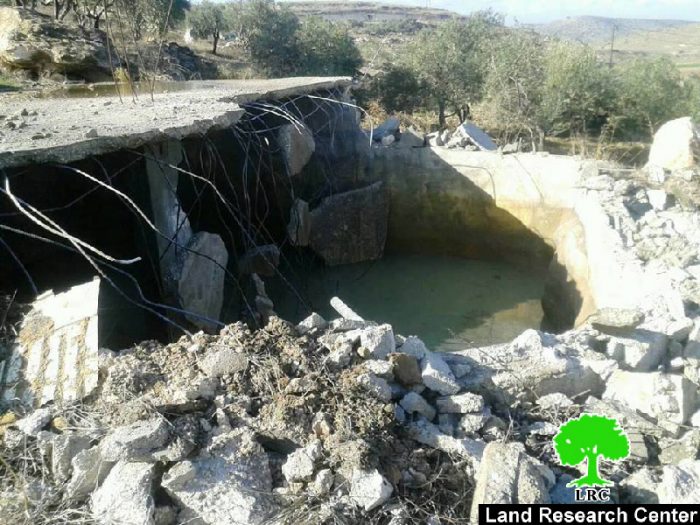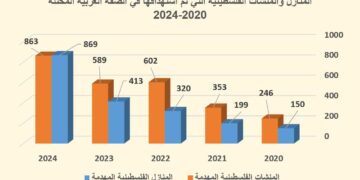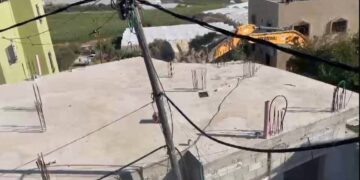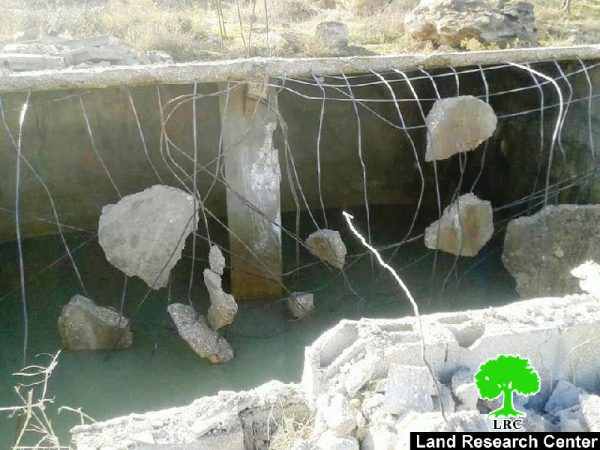- Violation: demolishing water well and agricultural room
- Location: Wad Al-Naqya- Idhna town
- Date: December 27, 2016
- Perpetrators: Israel Civil Administration
- Victims: Citizen Mousa Farajallah
Details:
Israeli Occupation Authorities demolished on December 27, 2016 water well and agricultural room owned by citizen Mousa Farajallah in Idhna town, west Hebron governorate on the claim of "unlicensed construction" The affected citizen said that a force from the occupation army accompanied by a military dozer raided the area of Wad Al-Naqya- and embarked on the demolition operation.
Photos 1-5: sings of the demolition operations
It is reported that the water well (500m2) was established in 1995 to collect rainwater and irrigate 8 dunums of lands, of which one dunum is planted with vine trees, two dunums are planted with vegetables and the rest are planted with olive trees. The force also demolished a 10m3 water cistern that was established on top of the water well. Moreover, the demolition reached out a 10m2 room that was established in 2000 to be used as a storage.
About Idhna:
18km west of Hebron, Idhna is inhabited by 19,012 people (2007 census). It has a total area of 26,152 dunums, of which2653dunums are considered the village's built-up area. The Israeli occupation confiscated 107 dunums from Idhna lands for the Apartheid Wall. Not only, more than 3,511 dunums were isolated behind the wall as a result of its construction. Besides, the bypass road number 35 that is 4,674 meters long confiscated more than 467 dunums from the village lands.
Land Research Center LRC sees that demolitions contradict with all the International conventions and Humanitarian laws including:
Article 17 of the (1948) Universal Declaration of Human Rights stating: “Everyone has the right to own property alone as well as in association with others. No one shall be arbitrarily deprived of his property.”
Section ‹G› of article 23 of the (1907) The Hague Conventions asserting: “In addition to the prohibitions provided by special Conventions, it is especially forbidden to destroy or seize the enemy's property, unless such destruction or seizure be imperatively demanded by the necessities of war.”
Article 53 of the Geneva Fourth Convention (1948) declaring: “Any destruction by the Occupying Power of real or personal property belonging individually or collectively to private persons, or to the State, or to other public authorities, or to social or cooperative organizations, is prohibited, except where such destruction is rendered absolutely necessary by military operations.”
Section 1, Article 11 of the International Covenant on Economic, Social and Cultural Rights (1966): “The States Parties to the present Covenant recognize the right of everyone to an adequate standard of living for himself and his family, including adequate food, clothing and housing, and to the continuous improvement of living conditions.
Prepared by
The Land Research Center
LRC


















